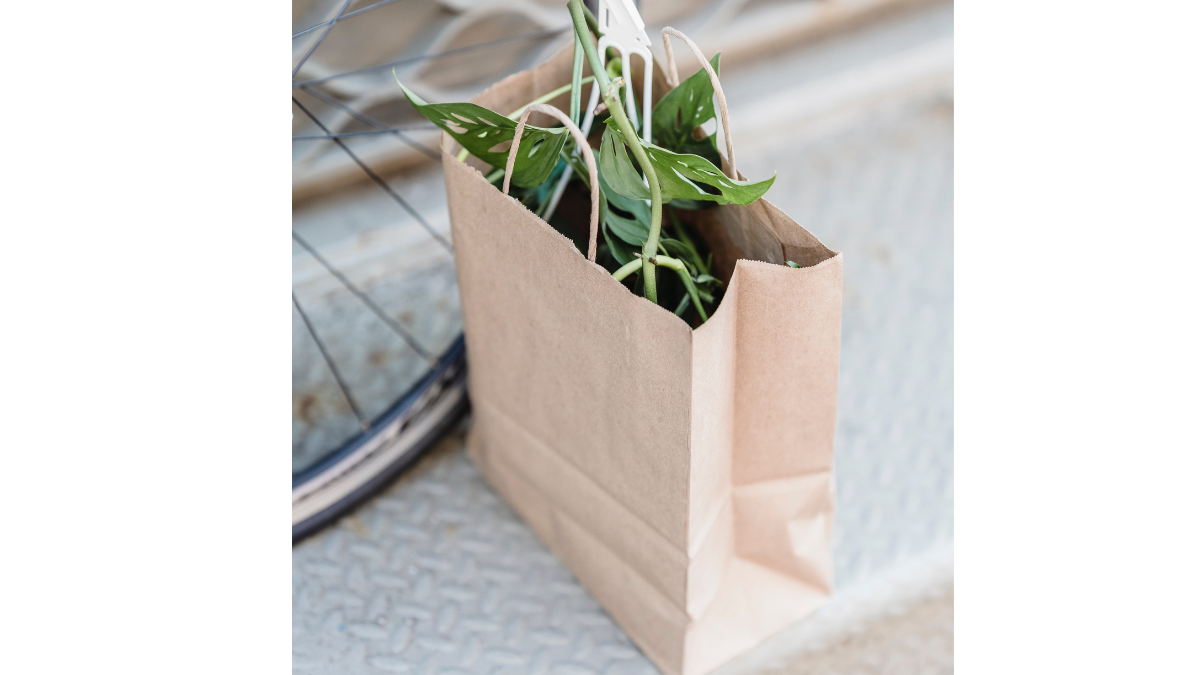In an era where environmental consciousness guides consumer choices, the debate over the ideal eco-friendly bag intensifies. This comprehensive exploration compares paper and plastic bags, shedding light on their attributes to determine the superior choice for both environmentally aware consumers and businesses committed to sustainable practices.
Decoding Eco-Friendly Bags: Paper Bag vs. Plastic Bag – 10 Points Decoding the Superior Choice.
. Discover why they outshine plastic counterparts, offering biodegradability, minimal impact on marine life, lower energy consumption, and recyclability. Make the eco-friendly choice, contributing to a greener, more sustainable business landscape.
Biodegradability:
- Paper Bags: Derived from a renewable resource, paper bags are inherently biodegradable. Composed of organic materials, they break down naturally within a few months, posing minimal harm to the environment.
- Plastic Bags: In stark contrast, plastic bags are notoriously non-biodegradable. Composed of synthetic materials, they persist for hundreds of years, contributing significantly to soil and ocean pollution.

Impact on Marine Life:
- Paper Bags: With marine ecosystems facing unprecedented threats, paper bags emerge as a safer alternative. Their ability to decompose harmlessly reduces the risks of entanglement and ingestion for marine life.
- Plastic Bags: Discarded plastic bags often find their way into oceans, endangering marine animals through entanglement and ingestion. The persistent nature of plastic exacerbates the disruption of marine ecosystems.
Energy Consumption:
- Paper Bags: The manufacturing of paper bags consumes less energy compared to plastic bags. Additionally, sustainable forestry practices ensure a continuous and renewable supply of raw materials, minimizing environmental impact.
- Plastic Bags: The production of plastic bags heavily relies on fossil fuels, contributing to increased energy consumption and, consequently, climate change. The extraction and processing of these non-renewable resources amplify environmental concerns.
Recyclability and Reusability:
- Paper Bags: Highly recyclable, paper bags contribute to a circular economy. The recycled fibres can be efficiently used to create new bags or other paper products, reducing the demand for virgin materials. Moreover, paper bags can be reused multiple times before recycling.
- Plastic Bags: While some plastic bags are theoretically recyclable, the actual recycling rate is disappointingly low. The limited reusability of plastic bags contributes to their single-use nature, leading to environmental challenges associated with disposal.

Durability and Strength:
- Paper Bags: Traditionally perceived as less durable, modern paper bags have undergone significant improvements. Advances in manufacturing techniques have resulted in stronger, tear-resistant paper bags capable of handling heavier loads effectively.
- Plastic Bags: Known for their immediate strength, plastic bags excel in carrying heavy items. However, this strength comes at the cost of environmental sustainability, as plastic bags lack the eco-friendly attributes of their paper counterparts.
Decoding Eco-Friendly Bags: Paper Bag vs. Plastic Bag – 10 Points Decoding the Superior Choice Photo Pexels
Resource Renewability:
- Paper Bags: Derived from trees, a renewable resource, paper bags contribute to sustainable forestry practices. Responsible tree harvesting ensures that new trees are planted to replace those used in production, maintaining the ecological balance.
- Plastic Bags: The production of plastic bags heavily relies on finite fossil fuel resources. As a non-renewable source, the extraction and utilization of fossil fuels for plastic production contribute to environmental degradation and climate change.
Landfill Impact:
- Paper Bags: When disposed of in landfills, paper bags decompose rapidly, minimizing their long-term impact. The organic breakdown contributes to the enrichment of the soil, reducing the burden on landfill sites.
- Plastic Bags: Plastic bags, with their extended lifespan, accumulate in landfills, contributing to the persistent problem of waste. The slow degradation of plastic releases harmful chemicals, further exacerbating environmental concerns.
Customization and Branding:
- Paper Bags: Beyond their eco-friendly attributes, paper bags offer an additional advantage in customization. Businesses can easily brand paper bags with logos and designs, contributing to brand visibility and recognition.
- Plastic Bags: While plastic bags can also be customized, the negative environmental perception associated with them may impact a brand’s image. Businesses are increasingly opting for eco-friendly alternatives to align with consumer values.
Consumer Perception and Preferences:
- Paper Bags: The growing environmental consciousness among consumers has elevated the preference for paper bags. Businesses that align with these values stand to gain consumer loyalty and positive perception.
- Plastic Bags: Consumer perception of plastic bags has shifted negatively due to their environmental impact. Businesses that transition to more sustainable alternatives can capitalize on changing consumer preferences.
Government Regulations and Support:
- Paper Bags: Governments worldwide are implementing regulations to promote sustainable practices, including discouraging the use of plastic bags. The support for eco-friendly alternatives, like paper bags, aligns with these regulatory initiatives.
- Plastic Bags: Many regions have imposed bans or taxes on plastic bags to curb environmental damage, Bangladesh government was the first to do so in 2002, imposing a total ban on lightweight plastic bags. Between 2010 and 2019, the number of public policies intended to phase out plastic carryout bags tripled.. This regulatory environment encourages businesses to adopt alternatives such as paper bags.
Conclusion: In the nuanced evaluation of eco-friendly bags, paper emerges as the superior choice for conscientious consumers and businesses committed to sustainability. Its biodegradability, minimal impact on marine life, lower energy consumption, recyclability, and renewability outweigh the immediate strength of plastic. The transition to paper bags signifies a collective step towards a sustainable future, where environmental considerations play a pivotal role in shaping consumer choices and business practices.
Future Outlook: As global awareness of environmental issues continues to grow, the demand for eco-friendly packaging solutions, including paper bags, is expected to rise. Businesses that proactively adopt sustainable practices not only contribute to environmental preservation but also position themselves as leaders in an increasingly eco-conscious market. The future outlook suggests a paradigm shift towards responsible and sustainable packaging, making paper bags a symbol of positive change in the business landscape.
You may also Read our Finance, World News, Local News, Health, Food, Education articles.

